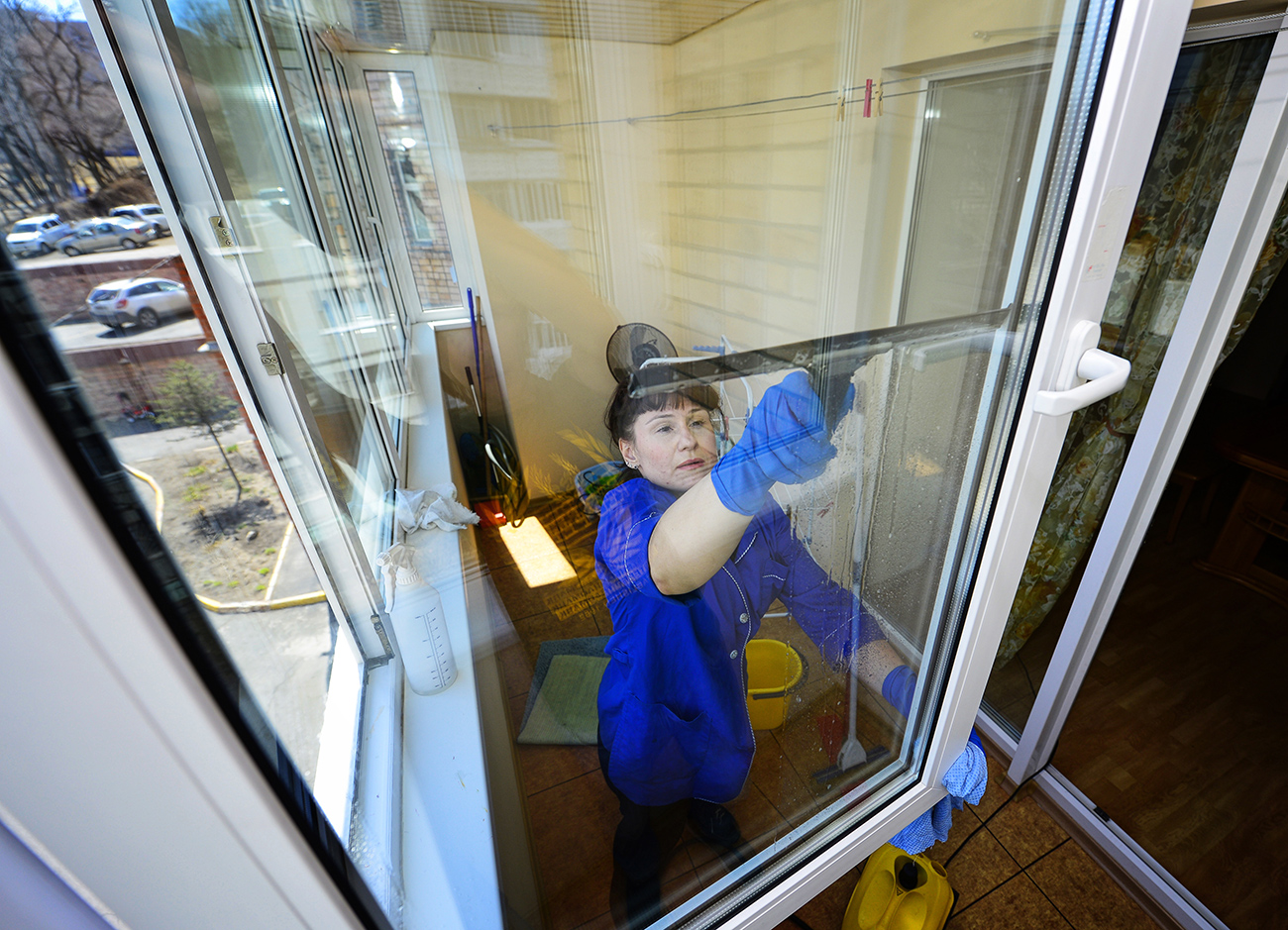Russians weather the crisis by sharing beds, rides and jobs

The market for Internet services and online exchanges is continuing to grow alongside the Internet service market.
Yury Smituk/TASSThe sharing economy is growing in Russia as people look for alternative ways to make money during the crisis, and the likes of Uber, BlaBlaCar and AirBnB are cashing in. AirBnB's inbound guest growth rate increased by 121 percent from 2015 to 2016, and the Russian BlaBlaCar site registered a record number of users last year, representatives told RBTH.
Russia's stuttering economy is also boosting the country's self-employment sector on the labor market, according to a 2016 report (in Russian) entitled "The Mobile Generation, or What's Happening with the Labor Market," as people actively search for alternative work through services such as YouDo.
Countering the crisis
Muscovite Artem Kuroptev, 35, is one person taking advantage of the sharing economy to make ends meet. He works as a salesman at a car dealership, but in his free time makes extra money on YouDo, where he receives orders to clean apartments.
"With the crisis the demand for cars dropped and consequently, so did my income from sales. Therefore I had to look for additional income," he told RBTH.
According to the report, in the last two years the number of Russians who found work on YouDo.com has increased by almost six times: from 23,000 in January 2015 to 137,000 in October 2016. Growth is expected to continue in 2017 with the number of self-employed workers predicted to reach 400,000.
"Thanks to the crisis, the demand for service marketplaces in Russia is being formed quicker than in the rest of the world," wrote Alexei Gidirim, founder of YouDo. He explained that in other countries such processes go through an evolution while in Russia they go through a "revolution", and that the development of YouDo is outdoing other service companies throughout the world, including those in the U.S.
Today the sharing economy market in Russia is not regulated by legislation. However, Gidirim told RBTH that for a series of companies and private users it's important that the Russian government protect their interests.
"It's possible that in the future certain actions will be taken to help users feel more protected," he said.
Meanwhile, the market for Internet services and online exchanges such as YouDo or Livemaster.ru (another Russian customer-search service) is continuing to grow alongside the Internet service market. According to estimates outlined in the "Runet Economy 2015-2016" study, the turnover of the service market (ordering taxis, tickets for events, food delivery, etc.) was $2.85 billion (169 billion rubles) in 2016, with an annual growth rate of 15 percent.
Sharing to make a profit
Russia and Ukraine are today's fastest growing markets for BlaBlaCar, said Alexei Lazorenko, director of BlaBlaCar Russia and Ukraine. In the summer of 2016, the company's Russian site saw a record number of users, more than one million according to Lazorenko.
"We think this leap is due to the increased demand for domestic tourism, which experts say is related to the economic crisis," he said.
BlaBlaCar's territorial coverage has also expanded. Before people were mostly offering to travel between large cities in Western Russia, but Lazorenko said it's now possible to drive to and from any city.
"Russia is among the countries which book the longest trips on AirBnB and is one of the very promising markets for AirBnB," said Andrew Verbitsky, general manager of AirBnB Russia. He also outlined that the economic situation has resulted in slower growth in the number of Russians traveling abroad and booking through AirBnB. In Russia the outbound guest growth rate was 58 percent.
"However, we are seeing very strong growth in domestic travel with Russians using AirBnB to travel within the country, the strongest cities being St. Petersburg and Moscow," added Verbitsky. In terms of growth rates, compared to neighboring countries, Poland has an outbound guest growth rate of 90 percent, Belarus 65 percent and Turkey 76 percent.
Read more: Russia looks to alternative transportation to solve traffic jams
If using any of Russia Beyond's content, partly or in full, always provide an active hyperlink to the original material.
Subscribe
to our newsletter!
Get the week's best stories straight to your inbox

